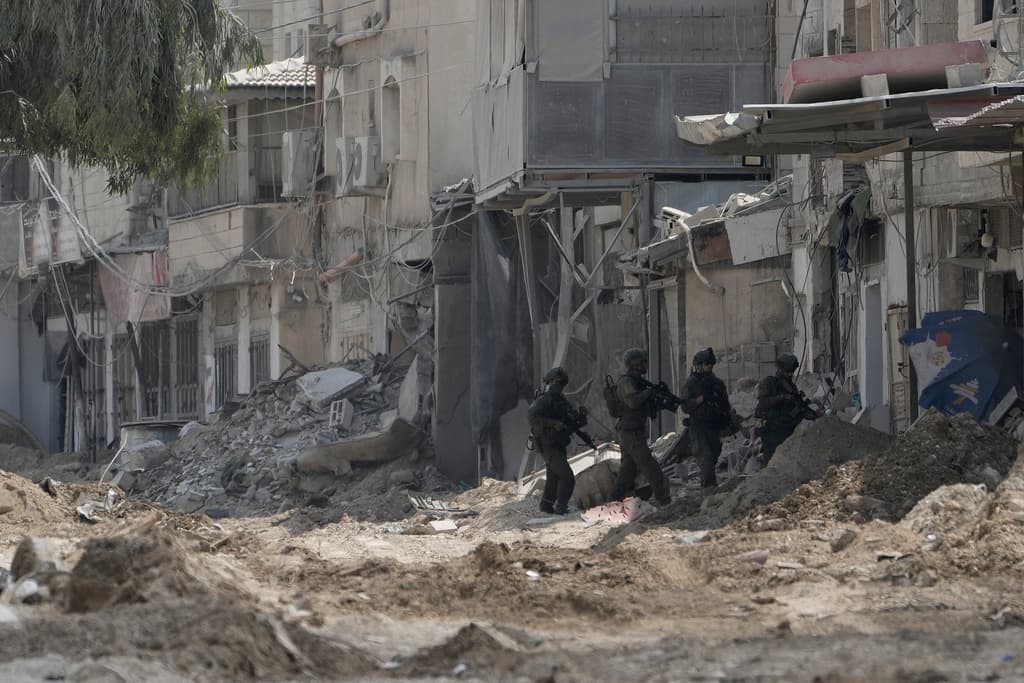In just under two days, Israeli forces have killed at least 17 Palestinians in coordinated raids on four areas in the occupied West Bank.
The operation is the largest in a long time, according to Anders Persson, a political scientist at Linnaeus University and an expert on the Israel-Palestine conflict.
The death toll is rising, and we see Israel using more powerful weapons than before, he says.
The dead are said to belong to different armed Islamist groups. It is logical that Israel wants to strike out groups like Hamas and Islamic Jihad, even on the West Bank, but Anders Persson believes the risks are great.
For me, it's a bit of a mystery why Israel is doing this right now, he says.
"Anarchy and chaos"
The West Bank has over 300 kilometers of border with Israel. It is porous, with holes and gaps, and much less control than the borders with Gaza and Lebanon. One can wonder about the risks of carrying out this type of large-scale attack there.
Persson sees three major risks. Firstly, there is a risk that the violence will escalate into a new Palestinian uprising – a third intifada – something that several analysts have warned about for years, he says.
But the violence also risks leading to the collapse of the Palestinian Authority (PA), which governs on the West Bank. President Mahmoud Abbas' government is squeezed from all sides and corners, says Persson.
A collapse would mean anarchy and chaos. The PA is the horse that the international community has bet on for future governance over Gaza. If they collapse, that plan falls apart.
"Clear escalation"
A third concern is that the Israeli offensive on the West Bank will prompt armed groups to resume their suicide bombings against Israel. On Wednesday, Khaled Mashal, a long-time leader within Hamas, urged just that, according to The Times of Israel.
In the early 2000s, during the second intifada, hundreds of Israelis were killed in a series of deadly bombings.
The situation is becoming increasingly precarious, notes Anders Persson.
It is particularly serious since there are no long-term political solutions to these conflicts – Gaza, Lebanon, and the West Bank. Apparently, there are no conditions for even short-term ceasefires to be put in place.
On Wednesday, Israel's Foreign Minister Israel Katz opened up for forced relocation of Palestinians on the West Bank, just like in Gaza. If that happens, it will be the first time since Israel occupied the area in 1967, according to Persson.
There is no doubt that it is a clear escalation and a very serious situation.
Since October 7, when Hamas, labeled as a terrorist organization, attacked Israel and the Gaza war became a reality, violence has escalated on the occupied West Bank as well.
Between October 7, 2023, and August 26, 2024, 622 Palestinians have been killed on the West Bank (including East Jerusalem), according to the UN's humanitarian agency Ocha. It is unclear how many of them belonged to armed Islamist groups.
The vast majority were killed by Israeli forces. About a dozen were killed in attacks carried out by Israeli settlers.
During the same period, 15 Israelis, mostly soldiers, have been killed by Palestinians in the area.
Approximately 3 million Palestinians live on the West Bank – but also several hundred thousand Israeli settlers, in communities considered illegal under international law. The area has been under Israeli military occupation since 1967.
Since the October 7 attack, the Israeli government has approved plans for thousands of new homes in about a dozen Israeli settlements on the West Bank.
Sources: Ocha, Landguiden/UI






